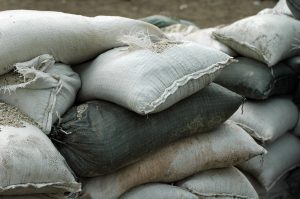In a disaster, whether natural or man-made, funeral homes bear an important responsibility in helping their community in a time of need. Today is no different; with the widespread alarm bells ringing over the novel coronavirus (COVID-19), funeral homes in the U.S. will be called upon once again to offer support for affected families.
While it’s true we can’t prevent a natural disaster or a global pandemic, we can prepare for them—because they will happen regardless. “Bad things do happen in the world, like war, natural disasters, disease,” said broadcast journalist Daryn Kagan, who finds a silver lining in the wake of catastrophe: “But out of those situations always arise stories of ordinary people doing extraordinary things.” And the funeral profession certainly has a long history of “doing extraordinary things” during a time of crisis. Let’s take a look at how funeral homes can step up to help their community:
Back in time
An early example of a funeral home providing aid comes from 1915, in the overturning of the Eastland in the Chicago River. The Eastland was Chicago’s own Titanic, and the city lost 844 lives. For the Hitzeman Funeral Home located nearby, in addition to several funeral homes on the West Side, there was no time to waste. By nightfall, undertakers began collecting the dead, and all funerals were held within a period of four days.
Recent history
Recalling recent history, in the wake of the attacks on September 11, 2001, many funeral professionals were called upon and deployed to serve alongside the Disaster Mortuary Operational Response Team (DMORT). Funeral directors worked tirelessly to assist in identifying remains and organizing services.
 Natural disasters
Natural disasters
In the past few years alone, parts of the U.S. have been devastated by hurricanes, wildfires, and tornados. Each of these events calls upon funeral homes in the region to provide support, and perhaps even offer a place of shelter for those who are displaced. Or, in the case of this Texas flood, a funeral home served as a drop-off point for a donation drive.
Today
Today, we face a new threat in the novel coronavirus. And similarly to the September 11 attacks, we haven’t seen this before. However, funeral homes will adapt and learn how to best offer support for families. For example, BBC reports that funeral homes are offering live-streaming for funeral services where affected areas are urging social distancing or perhaps even not permitting attendees. These adjustments will be critical for funeral homes over the next weeks and months.
Why do funeral homes step up?
Why do funeral homes step up and get involved in times of crisis? That’s easy: because “service” is an integral part of the profession. Regardless of the challenge, funeral directors play a critical role in the event of a mass-fatality. During these difficult times, as the NFDA says, families will count on you to provide the same level of high-quality care and compassion for families.
In preparing for something you can’t prepare for, here are the steps funeral homes can take:
Prepare your funeral home
Remember that in any disaster, your funeral home and your employees are your first line of defense. As a first step, ensure that you’ve created an Emergency Action Plan (EAP). The NFDA has created a comprehensive EAP template for funeral homes to help you get started.
Take care of your staff
In addition to the essentials like an evacuation plan and emergency kit, remember your staff. Specifically amid the coronavirus pandemic, your funeral home may be at risk of contracting or carrying the virus. As a result, ensure that your employees feel safe coming to work, and let then know that you’re doing everything possible to keep them safe.
Rely on expert resources
Stay connected with local government, nonprofit agencies, and religious organizations—all of which will be heavily involved in supporting the community in a time of need. When you communicate with those organizations who are responding, you can determine how your funeral home can best help. Here’s a few ways to stay connected and involved on a regular basis:
- Check out disaster planning resources from the American Red Cross, Centers for Disease Control and Prevention, and the Department of Homeland Security. Here, you’ll find critical resources to make a plan ahead of time and consider how you can plan for your community.
- Be among the first to know about an impending crisis: sign up for emergency alerts on your cell phone. When you receive an alert, get in contact with your local government and nonprofit agencies right away to participate in an initial response. When disaster happens, teamwork is critical.
- Contact your state association to see how you can get involved in developing a Mass Fatality Plan. In 2015, participants at the NFDA Leadership Conference proposed that each state association develop a specific death-care “plug-in” to their state mass fatality plans mandated by the federal government. You can start by downloading the NFDA’s Death Care Professionals Mass Fatality Plan Template for State Associations.
- Volunteer to be a member of your local Community Emergency Response Team (CERT), or any one of the other disaster relief volunteer organizations: Citizens Corps, Medical Reserve Corps, or the Voluntary Organizations Active in Disaster (VOAD). You could also take the necessary steps to volunteer with a regional Disaster Mortuary Operational Response Team (DMORT)
- Lastly, ensure that you’re following the NFDA and your state association to stay up-to-date on an evolving crisis. When you stay connected, you’ll understand how funeral homes should respond, including best practices and updated resources for the funeral industry. This includes the NFDA’s recent Facebook Livestream addressing the novel coronavirus (COVID-19) crisis and how funeral homes can prepare.
Check out LendingUSA’s funeral home financing program.
Image by pch.vector on Freepik
 Natural disasters
Natural disasters